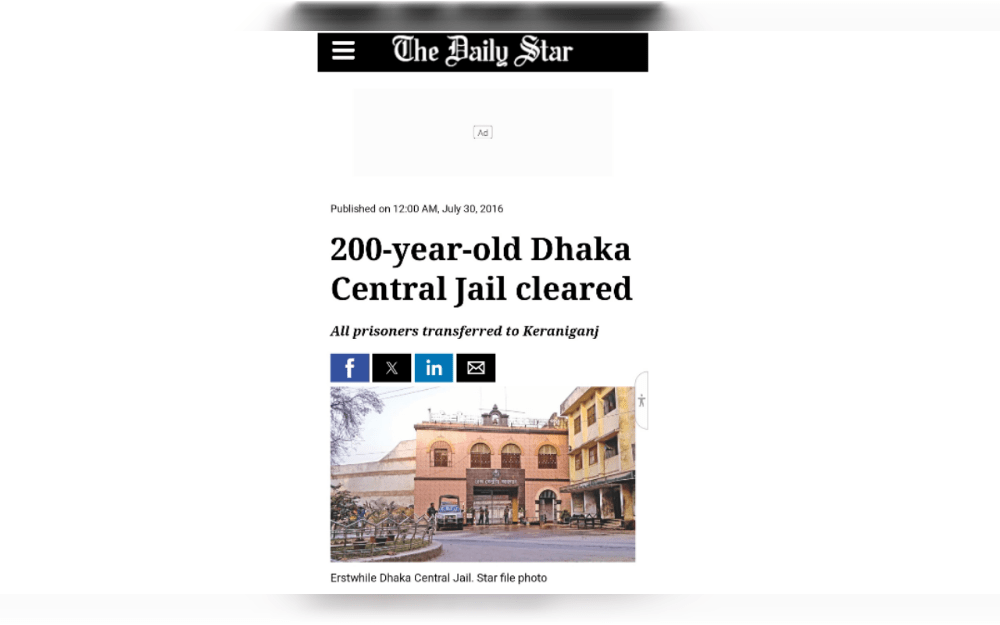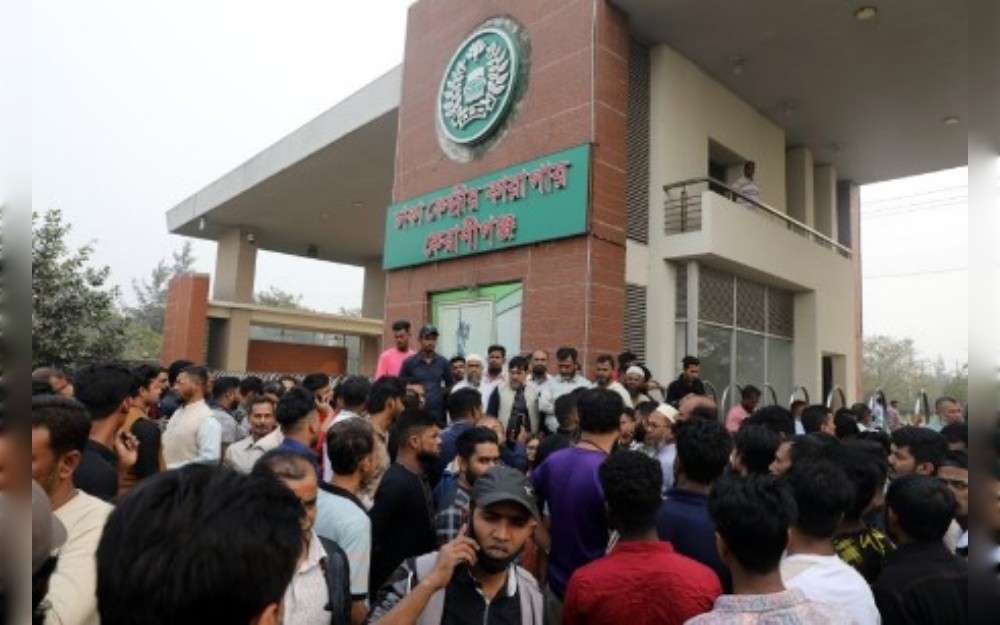The Supreme Court frees almost half the people the trial court imposes a death sentence on, some assessments show.
Ahammad Foyez/Dhaka

A Bangladesh court ruled Monday that it is unconstitutional to keep inmates in solitary confinement on death row before they exhaust their appeals, said an attorney representing three prisoners whose petition secured this “historic” victory.
In its ruling, the High Court in Dhaka observed that keeping a prisoner in solitary confinement while he awaits a Supreme Court decision on his appeal could take 20-25 years, and that’s akin to a “double sentence,” Mohammad Shishir Manir, the lawyer for the petitioners, told BenarNews.
“Therefore, [all] the accused who [have appeals pending and] are currently in the condemned cell[s] are directed to be placed with the general prisoners within two years,” the court directed, according to Manir.
Meanwhile, Attorney General A.M. Amin told reporters on Monday that he would discuss the ruling with various ministries to see whether the government would challenge the High Court’s ruling.
Citing data he analyzed over the years, Manir said he had concluded that almost half of the people condemned to death row by a trial court were acquitted by the High Court and then the Supreme Court.
Department of Prisons data shows that there are currently 2,554 inmates on death row in Bangladesh’s jails, of whom a majority – 2,468 – are male.
These inmates are confined to 8-foot by 8-foot cells and not allowed to go outside. Each so-called room comes with an attached bathroom, but it isn’t private because it lacks a door.
Kazi Reazul Hoque, former chairman of the country’s Human Rights Commission, called Monday’s ruling “historic” and said the trial courts needed to be more cautious before imposing the death penalty.
“Most of the death sentence cases take 10 to 12 years to [even] reach a final stage of trial,” he told BenarNews.
“But keeping the inmate in an isolated place for this long time is very inhuman.”

The number of inmates on death row has risen sharply in recent years, as more and more judges prefer imposing the death sentence to life in prison, lawyers have told BenarNews over the years.
In one week in December 2021, at least 46 people were sentenced to death for their roles in separate murder cases across the country.
A program director for Ain-O-Salish Kendra, a human rights group, had told BenarNews then that the cry was for capital punishment, every time a serious crime occurred.
“This is a dangerous phenomenon,” program director Nina Goswami said at the time. “People’s desire for vengeance has gone up as the nature of criminal activities has also gradually turned more horrendous.”
Attorney Manir, too, had said back then that trial courts were very likely not using judicial protocols correctly, resulting in faulty death sentence judgments that were then eventually overturned.
An inmate would have spent more than a decade in solitary confinement by then, because the High Court did not accept bail pleas from death row convicts – until now.
On Monday, the High Court ruled that bail petitions of death row convicts must be heard like those of any other convict. In fact, these inmates were to be referred to only as convicts, Manir, said.
“No one can be called a death row convict if a death sentence is only given in judicial [trial] court,” the High Court ruled, according to the lawyer.
The court, he noted, said that only if all the appeals made by the convict were rejected and the convict’s death sentence was upheld, could he or she be condemned to death row and called a death row convict.
“For this, the [appeal] application made to the High Court Division, Appellate Division and the President should be rejected. And after these processes, the High Court has ruled that only if the death sentence of someone is upheld, he can be kept on death row,” he said.
The three inmates who had jointly challenged their solitary incarceration were lodged in prisons in Chittagong, Sylhet and Cumilla. They filed their petition in the High Court on Sept. 2, 2021, after which the High Court in April 2022 asked the government why detaining the convicts in solitary cells before the finalization of the trial process should not be declared unlawful.
Last December, the inspector general of prisons had submitted a report to the apex court, saying convicts on death row were in the so-called condemned cells for security reasons, the local Daily Star reported.
Amnesty International said last July that at least 13 people had been executed, and 912 death sentences were imposed by trial courts between January 2018 and December 2022 in Bangladesh.
And between 1991 and 2020, Bangladesh jail authorities executed 101 people, according to a joint study by the University of Dhaka and the Bangladesh Legal and Services Trust, a human rights group.
Copyright ©2015-2024, BenarNews. Used with the permission of BenarNews.














